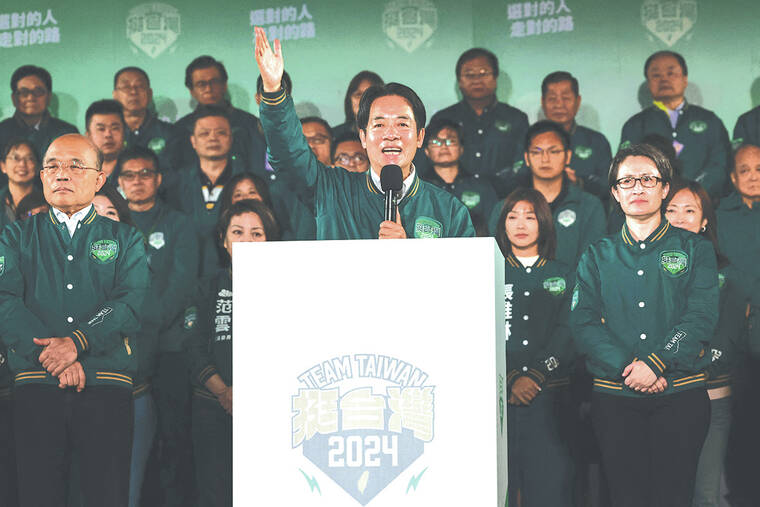Taiwan’s Lai to take helm in key flashpoint of US-China rivalry
Taiwan’s Lai Ching-te is set to be sworn in as president of the democratic island, putting him right at the heart of a geopolitical rivalry involving the world’s two biggest powers.
The 64-year-old former kidney doctor and current vice president will take his oath in the Presidential Office in Taipei on Monday morning. His inaugural address afterward will be closely watched for signs of how he will navigate the complex relationship between America and China, which has called him an “instigator of war” and pledged to bring Taiwan under its control someday, by force if necessary.
In the speech, Lai will indicate that he and his team will build on the policies of the outgoing president, Tsai Ing-wen, said officials in the Presidential Office who asked not to be identified discussing the matter, reiterating a vow he’s repeatedly made to ensure a level of continuity.
They added that he’d indicate he would cooperate with allies, as Tsai has done, to deal with military and diplomatic pressure from China. He’d pledge to maintain the status quo in the Taiwan Strait, they added.
Taipei’s relations with Beijing have become more pressing as China has stepped up military activity near Taiwan, raising the specter of a conflict. President Joe Biden has repeatedly said the U.S. would defend the self-governing island of 23 million people from any attack by China. Bloomberg Economics estimates a war over Taiwan would cost around $10 trillion, equal to about 10% of global GDP, dwarfing the blow from Ukraine, Covid-19 and the global financial crisis.
A key thing to watch for Lai in the early days of his administration is how he handles the issue of the “1992 Consensus” — an agreement between Beijing and the opposition Kuomintang that there is only one China, although each side has a different interpretation of the meaning.
Tsai refused to acknowledge that deal early in her tenure, prompting China to reject high-level talks with her for the past eight years. Lai has repeatedly indicated he will continue many of Tsai’s polices — including embracing the U.S. — a stance that means Taipei-Beijing relations will likely remain frosty in the coming years.
Tensions across the Taiwan Strait have escalated significantly since mid-2022, when then-U.S. House Speaker Nancy Pelosi visited Taipei and met with top leaders. Beijing responded to that visit with military drills that involved a mock blockade and missiles flying over Taiwan.


